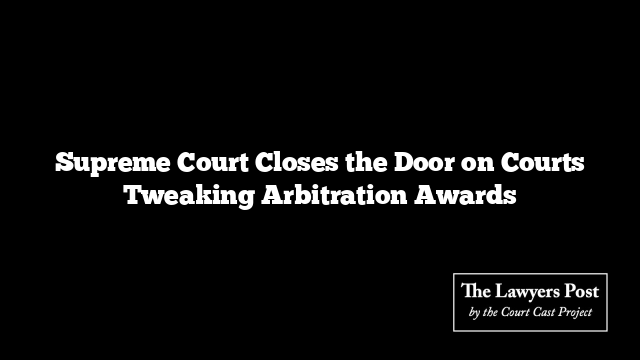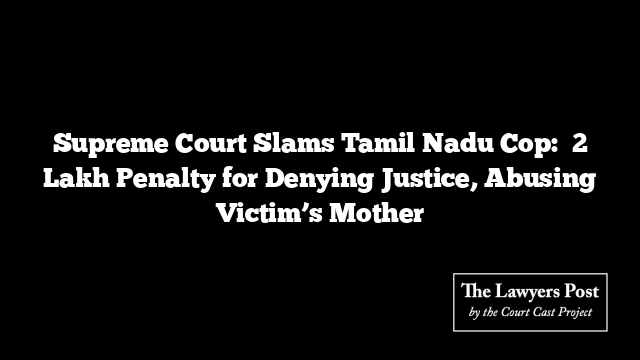In a major reset for arbitration law, a Constitution Bench of the Supreme Court has made it clear: courts in India are not allowed to modify arbitral awards under the Arbitration and Conciliation Act, 1996. If anyone was hoping for an appellate-style second look at an arbitrator’s decision, the top court has firmly said, “Not happening.”
The verdict came while sorting out a batch of appeals tangled around whether Sections 34 and 37 of the Act could let courts meddle with arbitration awards. The Bench, led by Chief Justice Sanjiv Khanna along with Justices BR Gavai, PV Sanjay Kumar, KV Viswanathan, and Augustine George Masih, settled the chaos: courts can either wipe out an award on very narrow grounds — or leave it alone. Tweaking it isn’t on the menu.
“Modification changes an award. Setting aside erases it. Mixing them up invites courts to weigh the merits — which the 1996 Act strictly bars,” the judges observed.
Breaking it down, the majority judgment said courts can step in only in a few tightly defined cases:
-
Severability: If a flawed part of an award can be carved out cleanly without hurting the valid part, the court can set aside just the bad portion.
-
Obvious Mistakes: Clerical slip-ups, typos, or math errors that jump out from the record can be corrected — but that’s it. Courts can’t go hunting for deeper errors.
-
Post-Award Interest Rates: If an award is silent or the interest rate seems unjust, courts can adjust the number. But they’re treading a thin line.
-
Article 142 Magic (Supreme Court Only): The Supreme Court, using its constitutional muscle under Article 142, can intervene — but even then, it can’t end up rewriting the arbitrator’s decision.
The court pointed out that the Arbitration Act, inspired by the UNCITRAL Model Law, was designed to keep courts on a tight leash. Section 34 allows interference only on serious procedural or substantive violations — not because a judge thinks the arbitrator got it wrong.
“Allowing modification would drag courts back into the merits — exactly what the 1996 law fought to avoid,” the Bench stressed.
As for fears about international enforcement under the New York Convention? No worries, the judges said. A trimmed or corrected award (within statutory limits) would still pass muster globally.
The ruling also highlighted that while parties can strike a deal after an award — as long as there’s no foul play like fraud or coercion — courts have no room to tweak awards simply because they might have preferred a different outcome.
One final note: on limitation periods, the Court confirmed that the clock stops ticking between the start of arbitration and the setting aside of an award — giving parties breathing room for any follow-up action.
Wrapping up, the Court made the new rules of engagement crystal clear:
Limited correction, no re-litigation, no second guessing.
Arbitration means finality — and Indian courts are going to stick to it.





